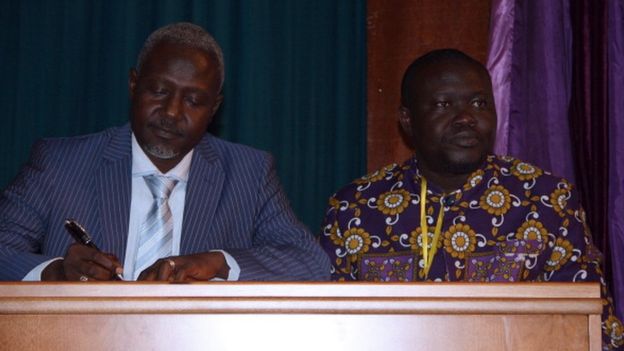
This article is more than
7 year old
Patrice-Edouard Ngaïssona is accused of co-ordinating militia attacks on the CAR's Muslim population in 2013-14.
In a statement, the International Criminal Court (ICC) said he faced extradition to The Hague.
Mr Ngaïssona, a committee member of the Confederation of African Football (Caf), denies all allegations.
The CAR, a former French colony, was plunged into turmoil in 2013 when predominately Muslim rebels from the Seleka group seized power in the majority Christian country.
A band of mostly Christian militias, called the anti-Balaka, rose up to counter the Seleka after President Francois Bozize was ousted.
Thousands have died in subsequent clashes and the United Nations (UN) says more than a million people have been forced to flee their homes.

Mr Ngaïssona was the self-declared political co-ordinator of anti-Balaka forces.
In this role, the ICC says he committed war crimes and crimes against humanity including murder, torture and the recruitment of child soldiers.
Speaking to the BBC, a spokesperson for the Caf said the football body had no position on his arrest, adding: "Let justice do its job."
Mr Ngaïssona was barred from running for CAR president in 2015 because of his alleged role in atrocities, which he denies.
He is a former head of the CAR's football federation and briefly served as sports minister before being elected to the Caf in February this year.
His appointment was criticised by several human rights groups.
"If the allegations were true, I wouldn't be here today," he told AFP news agency following the election.
He said he didn't want to "mix politics and sport."
"Everything I've done has been for the good of my country," he added.